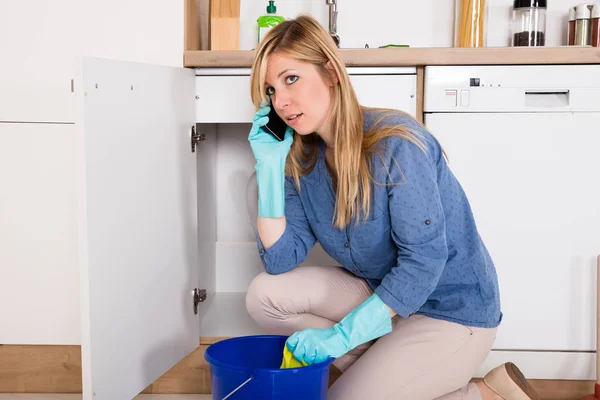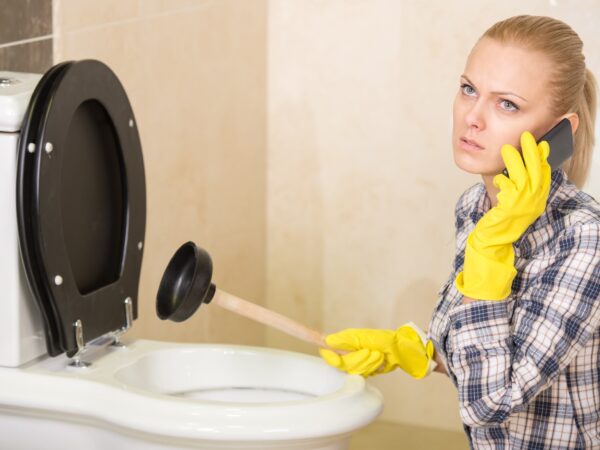How to Handle Urgent Pipe Problems with Effective Fixes Until Help Arrives
How to Handle Urgent Pipe Problems with Effective Fixes Until Help Arrives
Blog Article
The article in the next paragraphs relating to Expert Tips for Emergency Plumbing Repairs is seriously entertaining. Read it for yourself and see what you think about it.

Plumbing emergencies can strike at any moment, causing stress and potential damages to your home. Whether it's a ruptured pipeline, a stopped up drainpipe, or a leaky tap, recognizing just how to take care of the circumstance until a professional plumber arrives can save you from more complications. This short article supplies essential emergency situation pipes tips to help you reduce damages and reclaim control throughout a plumbing crisis.
Turn Off the Water System
The very first step in any type of pipes emergency situation is to shut down the water supply. For local concerns, such as a leaking tap or commode, turn off the valve near the component. When it comes to a major leak or ruptured pipeline, locate your home's main water shut-off valve and transform it off quickly. Recognizing the location of these valves in advance can conserve beneficial time during an emergency.
Address Little Leakages with Momentary Solutions
Small leaks can rapidly end up being substantial issues if left uncontrolled. Use these short-term solutions till professional assistance gets here:
While these repairs aren't long-term, they can assist lessen water loss and damages.
Unclog Drains Securely
A clogged up drain can be an irritating and messy problem. Below's how to tackle it:
If these methods don't work, prevent making use of too much pressure, as it may worsen the obstruction.
Handle Overflowing Toilets
An overflowing bathroom can trigger prompt chaos. Right here's what you need to do:
Turn off Your Hot Water Heater
In particular emergency situations, such as a ruptured pipeline, it's wise to shut off your water heater. This avoids overheating or damage to the system when water stops streaming. Turn off the power supply to the water heater (electrical or gas) and allow it cool to stay clear of possible hazards.
Temporarily Quit a Ruptured Pipeline
A ruptured pipeline can cause substantial water damages in mins. To alleviate the problem:
Call a specialist plumbing instantly to address the problem completely.
Take Care Of Frozen Water Lines Thoroughly
In colder climates, icy pipelines are a typical emergency. If you suspect an icy pipeline:
Protect against Additional Damage
Taking fast action to decrease damage can save you money and time over time. Below's exactly how:
. Have an Emergency Situation Plumbing Set
Prepare a standard plumbing emergency set to take care of minor problems properly. Your kit ought to include:
Having these tools handy can make a significant difference in your capability to take care of emergencies.
Know When to Call a Specialist.
While quick fixes can assist temporarily, particular plumbing problems call for immediate professional interest. Call a plumbing if:.
Quickly calling an expert ensures the concern is resolved correctly and avoids additional issues.
Verdict.
Pipes emergency situations can be overwhelming, but with the best understanding and devices, you can take care of the scenario properly until help arrives. By turning off the supply of water, attending to small leaks, and utilizing short-term solutions, you can reduce damage and keep your home safe. Remember, these suggestions are short-term services; always speak with a certified plumbing to deal with the root cause of the problem. Preparation and fast reasoning are your ideal allies in any kind of plumbing emergency.
8 Helpful Tips for Managing Plumbing Emergencies at Home
If your plumbing system hasn’t failed once, wait for it because almost everyone has a story to tell. Sometimes, it could be simple emergencies such as a leaking pipe, a blocked cistern, or even a big burst pipe. In situations like this, you need to have some handy tips to save you some money and from possible damages.
Take care of minor issues early.
Sometimes, you could have avoided an emergency by taking proactive measures while it was still early. Some major plumbing emergencies can be a result of an ignored minor issue. We recommend that you have items like plumbing tapes and other related items. A plumbing tape can allow you to manage minor leaks before the plumber arrives.
Cut off the water supply.
This tip is essential in almost any type of leakage problem. For problems like minor leakages in the toilet or kitchen, turn off the supply that takes water to the affected pipes. If the leakage is a major pipe, you must shut off the supply valve to the entire building. This will help you avoid flooding your home and neighbors if you share a flat.
Know your plumbing system
Folks typically move into a new apartment without understanding the water supply around the building. This can prove disastrous if a water emergency arises and the plumber is far away. The previous tip will prove useless if you don’t practice this one. More importantly, know where your water shut-off valve is located – you’ll need that knowledge to prevent potential home floods.
Have some common handy tools
There are lots of plumbing emergencies that you can handle without hiring a plumber. That’s why you must keep some tools available always. Some tools that you can use to fix simple plumbing emergencies easily include plumbing tapes, screwdrivers, thread seal tapes, plungers, pliers, tape measures, and rubber gloves.
Insulate your pipes from cold
You’ll save yourself from many plumbing expenses if you protect your water pipes from the cold. This is because of the harmful effects that cold weather can have on your pipes. During winter, your pipes can burst from being overly expected to freezing temperatures. So, make sure insulators are there to keep the pipes working correctly.
Avoid practices that will clog your toilet.
Many people indulge in practices that can damage the plumbing system of the entire building. One of these is when they use their toilet to dispose-off garbage. They flush all kinds of things, such as paper towels, bandages, hairs, female sanitary products, etc., down the toilet. This will block your toilet in the long run, incurring unnecessary expenditures. Dump such waste in the trash instead.
Check your dials regularly.
Sometimes, there could be leakages in your home without noticing them in time. So, constantly monitor your water meter dial. If the dial is reading when there is nobody using water, this is an indicator that there is leaking. Check for leaks immediately. Call a plumber as soon as possible if you can’t find any.
https://www.constructionplacements.com/8-helpful-tips-for-managing-plumbing-emergencies-at-home/

I came across that post about What to Do During a Plumbing Emergency while perusing the internet. Enjoyed our post? Please share it. Help another person find it. We value your readership.
Call Today Report this page